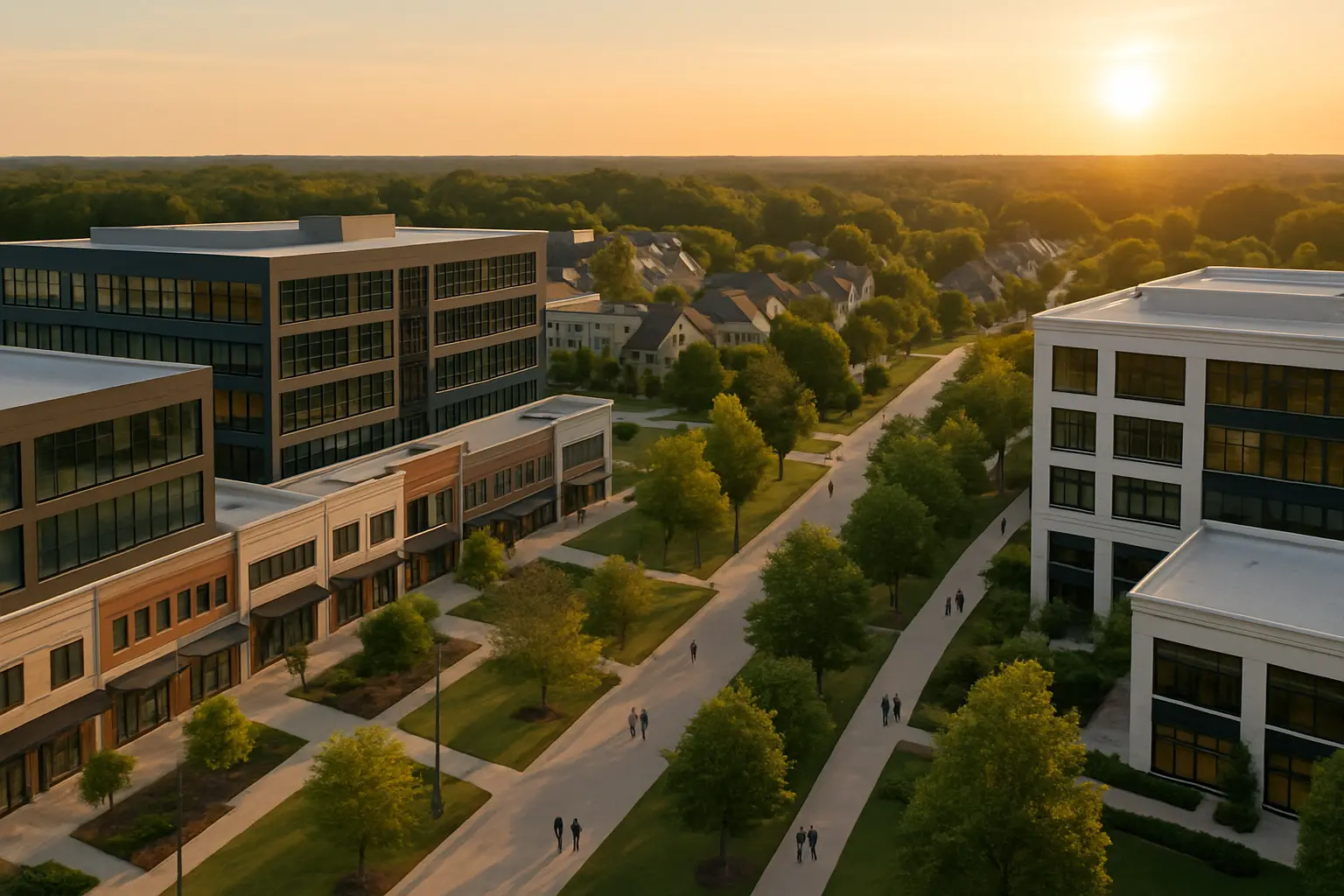The Business Hub Belt: South Metro Atlanta's Commercial Real Estate Renaissance
Discover how cities like McDonough, Peachtree City, and Stockbridge are transforming into thriving commercial centers while maintaining their residential charm.

The Emergence of South Metro Atlanta's Commercial Corridors
South Metro Atlanta is experiencing an unprecedented commercial renaissance, transforming what were once quiet suburban communities into vibrant economic centers. This evolution marks a significant shift in the region's development pattern, creating a distinctive 'Business Hub Belt' that's reshaping the metropolitan landscape.
The emergence of these commercial corridors has catalyzed local economic growth, with communities seeing substantial increases in job creation and business establishment. The impact is particularly evident in the rising commercial occupancy rates and the influx of national and regional businesses choosing to establish their presence in the area.
The Perfect Balance: Commercial Development Meets Residential Appeal
What sets South Metro Atlanta's development apart is its masterful blend of commercial growth with residential charm. McDonough and Peachtree City stand as prime examples of this harmonious integration:
- McDonough: Has successfully developed its commercial district while maintaining its historic square and neighborhood character
- Peachtree City: Continues to expand its business parks while preserving its signature golf cart community lifestyle
"Our vision has always been to create spaces where businesses can thrive without compromising the quality of life that attracted residents here in the first place," explains a local development authority representative.
Investment Opportunities in Growing Markets
Emerging Commercial Hotspots
The region offers diverse investment opportunities across several key markets:
- Stockbridge: Mixed-use developments near Eagles Landing
- Fayetteville: Retail and entertainment complexes
- Conyers: Industrial and logistics facilities
These markets are experiencing significant growth, driven by factors including:
- Strategic location along major transportation corridors
- Competitive real estate prices compared to northern Atlanta suburbs
- Strong population growth and increasing household incomes
- Pro-business local governments
Market Performance Indicators
Commercial real estate in the region shows promising trends:
- Consistent annual property value appreciation
- Growing demand for Class A office space
- Rising retail occupancy rates
- Increasing interest from national retailers and corporations
The Future of Suburban Commercial Development
South Metro Atlanta's business hub belt represents a new model for suburban commercial development. This approach demonstrates how communities can embrace economic growth while maintaining their suburban character. The success of this model has attracted attention from urban planners and developers nationwide, who see it as a blueprint for sustainable suburban development.
Key factors contributing to this success include:
- Smart zoning policies that protect residential areas
- Investment in infrastructure and transportation
- Focus on creating walkable, mixed-use developments
- Preservation of green spaces and community amenities
As the region continues to evolve, the Business Hub Belt stands as a testament to how thoughtful commercial development can enhance rather than diminish suburban quality of life, creating sustainable, vibrant communities for future generations.


